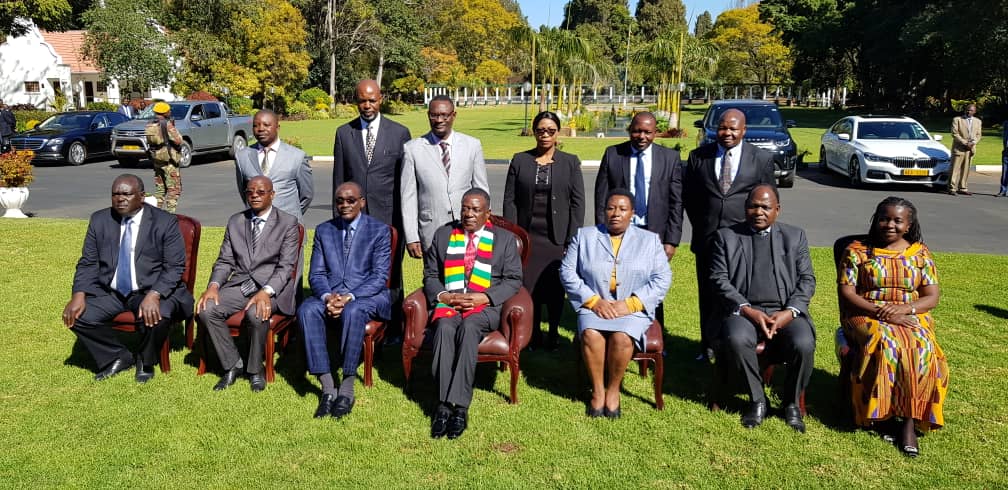ONE thing that has hurt Zimbabwe is the politics of impunity – that one steals money and still gets away with it.Corruption is fundamentally a problem of governance. It thrives in economies where civil servants and political elites are not adequately constrained by the law and the State is either too weak or unwilling to fully and effectively oversee the activities of its agents.
With strong and effective democratic institutions, for example, an independent judiciary, legislature, National Prosecuting Authority, Zimbabwe Anti-Corruption Commission (Zacc), Auditor General, a free press, a robust and politically active civil society, individuals or groups that attempt to corrupt the State can effortlessly be frustrated.
In the United States, for example, the Watergate Affair which centered on the abuse of power by the Richard Nixon administration, was exposed by the independent press. The country’s other democratic institutions, the judiciary and the legislature, all of which were independent of the offending executive, played critical roles in resolving what could have turned into a major constitutional crisis. The House of Representatives Judiciary Committee voted to impeach Nixon in July 1974, and his ouster from office became inevitable, on August 19, 1974 he resigned. Almost 60 individuals including former US Attorney General John Mitchel and senior White House staff were convicted of Watergate crimes. This case illustrates the importance of strong and effective institutions in dealing with endemic and grand political corruption.
Even here in Zimbabwe, both the electronic and print media have exposed corrupt behaviour – the Obadiah Moyo Drax scandal being such a fresh example.
However, even with strong and effective institutions, private interests may be able to bring under their control branches of the government or governing processes. For example, private business interests might be able to corrupt the executive and capture that branch of the government. Nevertheless, the country’s other institutions, including especially the independent press, are usually able to expose such corruption, paving the way for the independent judiciary to take action to restore the integrity of democratic institutions, including the executive branch. While it is possible for private interests to capture certain branches of government, the process is usually short-lived because other institutions can expose the corrupt activities of elites, bring culprits to justice, and restore the country’s democratic institutions.
For example, in South Africa, the executive branch of government, under President Jacob Zuma, had been implicated in several corruption scandals. Private business interests (Gupta Family), had been able to corrupt and capture the executive branch of government. Nonetheless, South Africa’s strong institutions, including an independent press, a very robust civil society, legislature, and the independent office of the Public Protector, managed to expose the alleged misdeeds of the president and his business partners. It is now left to the judiciary to perform its constitutional functions and legally resolve all the issues associated with the alleged corruption.
Rule of law
The extent of corruption in a country is determined, by the nature of the country’s institutional arrangements. For example, if a country’s institutional arrangements guarantee the rule of law, and state custodians are adequately constrained by the law, then corruption and other forms of impunity will be minimised.
Rule of law (United Nations, 2012) refers to: “a principle of governance in which all persons, institutions and entities, public and private, including the State itself, are accountable to laws that are publicly promulgated, equally enforced and independently adjudicated, and which are consistent with international human rights norms and standards. It requires measures to ensure adherence to the principles of supremacy of law, equality before the law, accountability to the law, fairness in the application of the law, separation of powers, participation in decision-making, legal certainty, avoidance of arbitrariness and procedural and legal transparency”.
The critical point is that where the governing process is undergirded by the supremacy of law, the efforts of private interests to corrupt the State are most likely to be discouraged by the democratic institutions. Thus, for Zimbabwe to achieve zero tolerance for corruption and a corrupt free society, the principle of the supremacy of law must be a central feature of its governing processes.
Judicial independence is very important for corruption control. Thus, all officers of the judiciary must be granted security of tenure, financial security, and institutional independence. Without an independent judiciary, it would not be possible for Zimbabwe to deal effectively with grand corruption.
Finally, openness and transparency are critical to the fight against corruption as the availability and accessibility of relevant information about the functioning of the polity, is commonly associated with the absence of corruption. Since corruption, by definition, violates generally accepted standards of behaviour, greater transparency should discourage corrupt actions, or at least facilitate appropriate mechanisms of punishment (legal, administrative or electoral).
In general, openness and transparency enhance the ability of citizens to monitor and check on the activities of civil servants and politicians, significantly contributing to accountability and a subsequent reduction in corruption.
In a corrupt state, socio-economic sustainable development is not likely to be a policy priority. This affects the implementation of public policies e.g. investment in education, infrastructure, child nutrition, health care, and prenatal care for pregnant women that promote human development. For instance, the 2018 Auditor General reports that there were transactions worth US$5,8 billion, ranging from unsupported expenditure, excess expenditure, outstanding payments to suppliers of goods and services and transfers without Treasury approval . This constitutes about 82% of government expenditure for 2018. This shows that public finance management in Zimbabwe is under threat. Thus, resources mobilised in 2018 did not contribute much to the progressive realisation of social and economic rights of citizens due to corruption and violation of procurement procedures.
Foreign investment, which brings necessary technology, improves productive efficiency, and enhances the country’s ability to become globally competitive, is prevented from entering the economy by corruption. Without containing corruption, Zimbabwe will remain trapped in a state of underdevelopment characterised by extremely high levels of poverty and deprivation.
It should be easy for Zimbabwe to eradicate or reduce corruption to reasonable levels because it has a progressive constitution that ensures the separation of powers with effective checks and balances. The area that needs more work is the governing process to ensure enforcement of all constitutional provisions. Institutional reforms involving transparency and accountability have been emphasised by President Emmerson Mnangagwa. They include establishing criminal and administrative sanctions, strengthening judicial processes, financial and assets disclosures and open budget processes.
All these measures are enshrined in various Acts of Parliament but, unless there is the political will to implement them, they will remain just as reference material.
Anti-corruption efforts should have both economic and political dimensions. Politically, the leadership must evolve a culture of honesty based on transparency and credibility. Leadership has to display that it does not tolerate, encourage, entrench and institutionalise corruption and does not glorifies its perpetrators. It needs to lead by example, showing zero tolerance for corrupt behaviour, even at the highest echelons of government.
The early indicators since the inauguration of the Second Republic would seem to suggest that at the level of executive rhetoric at least, there is awareness that, both for the sake of the well-being of the economy and the viability of the Second Republic, corruption would need to be tackled frontally. The legal and institutional framework for dealing with corrupt practices must be independent of political control in order to ensure credibility.
On the economic side, the government should scale down regulations on economic activities, as well as other policies, which contribute to the demand for and supply of corrupt activities.
On the supply side, this can be done by improving public sector wages towards market-based levels, thereby lowering the premium on errant behaviour and making dismissal from the civil service both a painful and a credible threat. At the same time, public sector efficiency would be enhanced. Attractive wages in the public sector demand urgent attention because the perceived high correlation between corruption and inefficiency of civil servants retards economic growth.
It is no wonder that some health workers, who are chronically underpaid and overworked, sometimes turn to bribery to support themselves and their families.
Bribery in the health system exists for many reasons: a lack of institutional capacity, lack of punishment or sanctions, deplorable working conditions and low salaries. For instance, in early 2019, both print and electronic media reported that Masvingo Provincial Hospital medical superintendent Dr. Julius Chirengwa and the entire management committee had been suspended pending investigations into a scandal that resulted in critical drugs being diverted to private pharmacies for resale in foreign currency.






